News
Have you read “The secret behind DSS, Prisons Service officials fight over Emefiele?”
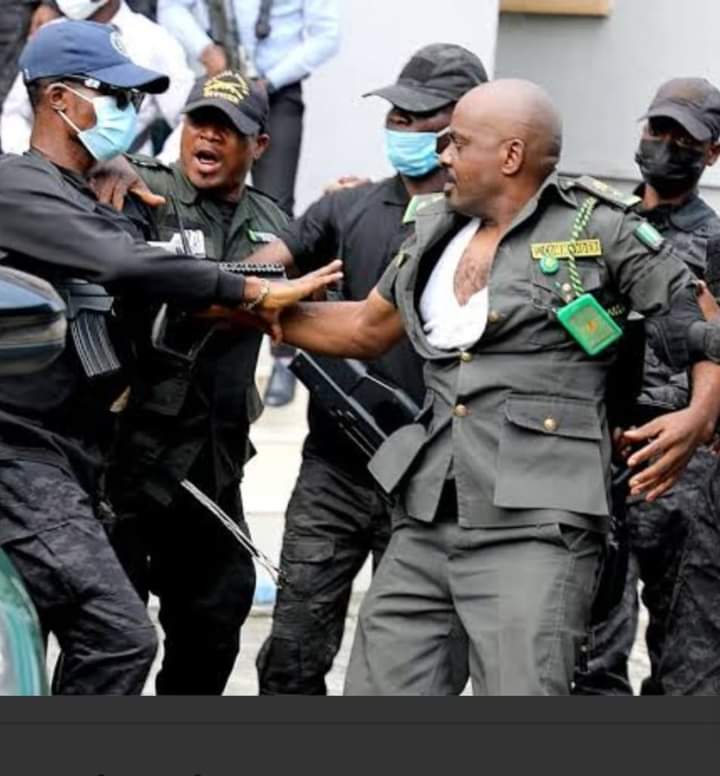
By Emeka Ugwuonye
One of the good things out of spending time in Nigerian prison was that I learnt some secrets about how the prison and the Nigerian criminal justice system work. Yes, I was detained in Kuje prison. I was never convicted. No court ever found me guilty of any crime. And I did not commit a crime. Yet, I spent time in prison. I used my time in prison to study the prison and the system so well. If Nigerian prison were to be a university, I would have gotten double PhDs. In Nigerian, nobody goes to prison just because he committed a crime. You go to prison because you annoyed someone who has money to pay someone for you to be charged.
Now, about the fight you read about between DSS and prison officers, there are questions to ask. First, why was the Officer-in-Charge of Ikoyi Prison in court at that time? The Officer-in-Charge is the equivalent of Deputy Commissioner of Police. He does not go to court unless ordered to appear. The Officer-in-Charge of the correctional center does not normally go to court But this Officer-in-Charge was in court as Emefiele was ordered to be remanded in Ikoyi Prison. Why?
The prison staff, especially the Officer-in-Charge and above make a lot of money when a big man is detained in their prison. They go out of their way to curry favor from such big men. A man like Emefiele has a lot of money. He will need a lot of favors while in prison. He will need access to phones. He will want to have air-conditioned cell, specially fitted cell. He will want to have access to visitors and many other things. He is not entitled to any of this. But with the support of the Officer-in-Charge, he will have them and more. That will cost him a lot of money, like millions of money. So, everybody in the prison hierarchy would have been lined up to benefit from Emefiele. That effort starts right from the moment he leaves the court and heads to prison. He would be taken in special vehicle.
I saw this a few times in Kuje. I will never forget the day Abdulrasheed Maina arrived in Kuje prison. All the top officials went wild. They were falling over themselves in order to please Maina. I happened to be taken to the court the same day Maina was being taken to court for the first time from the prison, and they placed me in the same van with Maina. Oh my God! It was like the President’s motorcade. The entire prison top guys went to court that day in support of Maina. There were sirens and escort vehicles ahead of our van. They said they were providing security. I was laughing silently as I watched all the prison officers falling over themselves to please Maina. So, I could imagine what was going on in their camp when they guessed that Emefiele was to be arraigned in court for firearm-related offences. They knew that the court would grant Emefiele bail and that he would likely not meet the terms of bail the same day. So, he would spend at least one night in prison.
Again, I have double PhD on the Nigerian criminal justice system. I saw a part of it that lawyers do not see and which is never taught in any law school. The prison officers are at the bottom of the food chain. By the time an inmate gets to the prison, the police have taken all his money. He has paid his lawyer and may have bribed the court officials. By the time he finally gets to the prison, he is out of money. So, the prison officers do not have the opportunity to make money from their inmates as the police do from suspects. Compared to other players in the chain, prison officers are the poorest. So, they could be quite desperate and when opportunities like Emefiele comes, they grab them with both hands. They could go out of their way to please such a man, as you saw in the free-for-all fight between DSS and prison officers. Thank God they didn’t shoot themselves
Back to Maina’s case, Maina is quite a character. The first day he was taken to court from the prison and I went in the same van. By the way, all the time that I had been going to court from prison, they would put me in some rickety and dilapidated iron monger, a sort of gwongworo. The ride to court was so agonizing because the poorly constructed contraption they call vehicle was dangerous for even inmates to travel in them. But that day I went in the same van with Maina, the prison authority suddenly brought a van with air-conditioner in it. Immediately I saw Maina in the van, I chatted him up. We became friends there and then. He is an American citizen (I am sure many people did not know that). And knowing I was from America, Maina became close to me. But I knew instantly that associating with Maina could be tricky. He is a funny character.
That first day, the Officer-in-Charge went to court. He ordered even the prison doctor to go to court. The prison officials took a hospital bed and stretcher to court so that when we got to court Maina would pretend to be sick and they would wheel him in. This was calculated to increase the chances that the judge would grant him bail on health ground. I was laughing. Maina was okay when we left the prison, but he was suddenly sick by the time we got to the court. All that trick was organized by the prison officials to help the big man.
Nigerian justice system is so weird that sometimes you don’t know who to blame. Various agencies don’t trust each other. DSS does not trust the court. They believe that the judge might take bribe and compromise the case. That is why sometimes, the police, the DSS, the EFCC are reluctant to take suspects to court. They don’t trust that the judge would act without influence. But at the same time, DSS is not any better than the court. The DSS people knew that if Emefiele was allowed to go to Ikoyi Prison, he would have access to phones and would have visitors and he would probably obstruct any further investigation. DSS could not trust the court and could not trust the prison with Emefiele.
In fact, DSS only charged Emefiele because the court ordered them to charge him or release him. To frustrate the court, the DSS obtained a warrant of arrest on another offense from another court to justify their continued detention of Emefiele. They kept the warrant in their back pocket, knowing that the court would order Emefiele detained at the prisons. So, DSS took Emefiele to court but with weapons they planned to use to frustrate whatever the court ruled. That is the danger in this country. None of these agencies is acting honestly. Each has its own agenda depending on who heads it, and each is suspecting other agencies. The EFCC does not trust the police, the court, DSS or the prisons or anybody outside EFCC. DSS does not trust the court, the police, EFCC, the prisons. In an ideal setting, each of these agencies is supposed to trust the sister agencies. The only institution that should not trust anyone is the court. But surprisingly, our courts trust the police, the EFCC and DSS. And that is why the courts fail the citizens. The constitution designed it in such a way for the courts to be suspicious of these agencies and to protect citizens against them. But are courts are timid and they trust the people they supposed to be skeptical about.
I was not surprised to see that the distrust between these agencies (that are supposed to be coordinated and cooperating) would get to the point of DSS manhandling the Officer-in-Charge of the prison. Thought embarrassing for the country, it was also funny. Why would the Officer-in-Charge get so personally involved to the point of being beaten up and bundled into the DSS van. It was as if DSS were going to detain him and Emefiele. Why didn’t he just contact his boss who would contact the boss of DSS and possibly the president? Why fight like school children? That was because they were all fighting for their pockets
On many occasions, the police refuse to take suspects to prison as ordered by court, the police actually run their own illegal prisons. Why didn’t the Officer-in-Charge go to fight the police for the poor guys they abuse all the time? No, the poor guys have no money to give the prison officers. Only the Emefieles of this country would cause such a fight.
Just know one thing: all these people had their own agenda. The court knew this could happen. The court deliberately remanded him in prison. It was not a coincidence. The Officer-in-Charge of prison, instead of doing his work, personally came to the court to receive Emefiele. The DSS knew that all that would happen and they came with another warrant in their pocket, which they obtained from another judge, who also knew the game. It is a funny country. I would have asked you to pray. But if all the prayers our parents have been praying since the days of Lord Lugard did not help, how will your prayer today make any difference?
News
Tinubu re-appoints Prof. Abdullahi Mustapha as NBRDA DG
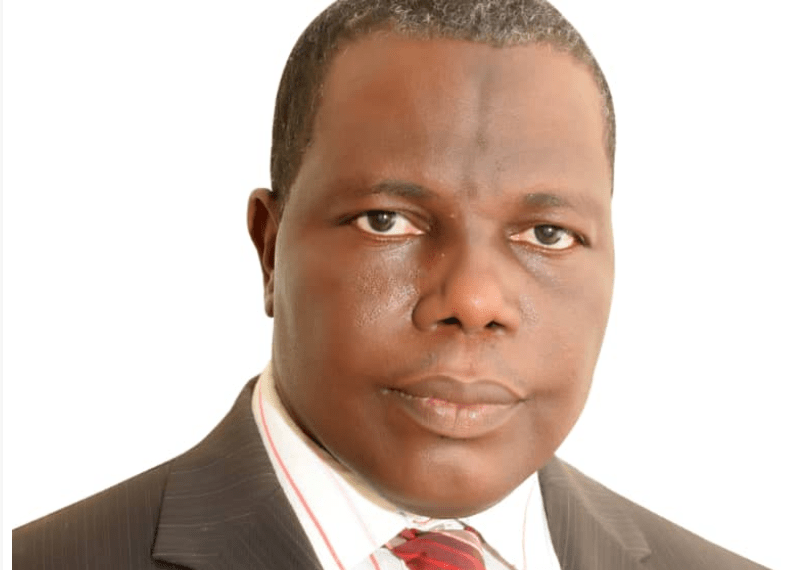
By Bonaventure Melah
President Bola Tinubu has approved the reappointment of Prof. Abdullahi Mustapha as the Director General, National Biotechnology Research and Development Agency (NBRDA), for a second tenure of five years.
This is contained in a press statement issued by Toyin Omozuwa, Press Secretary to the NBRDA D-G in Abuja on Saturday.
According to the statement, Mustapha’s reappointment was conveyed in a letter signed by the Secretary to the Government (SGF), Sen. George Akume.
“Mustapha’s second tenure is with effect from 31st October, 2024 and is in line with the provisions of Section 10 (1) and (3) of the National Biotechnology Development Agency (Establishment) Act, 2022,” it said.
Omozuwa said that Industry experts consider the reappointment as an expression of President Tinubu’s confidence in Mustapha’s ability to drive innovation towards attaining food security
According to him, the reappointment would enable the DG to complete his work in enhancing pharmaceutical production, as well as positioning Nigeria at the forefront of the Fourth Industrial Revolution.
Mustapha is a Professor of Bioinorganic Chemistry and hails from Dambatta Local Government Area of Kano State.
News
Kidnappers free abducted Catholic priest
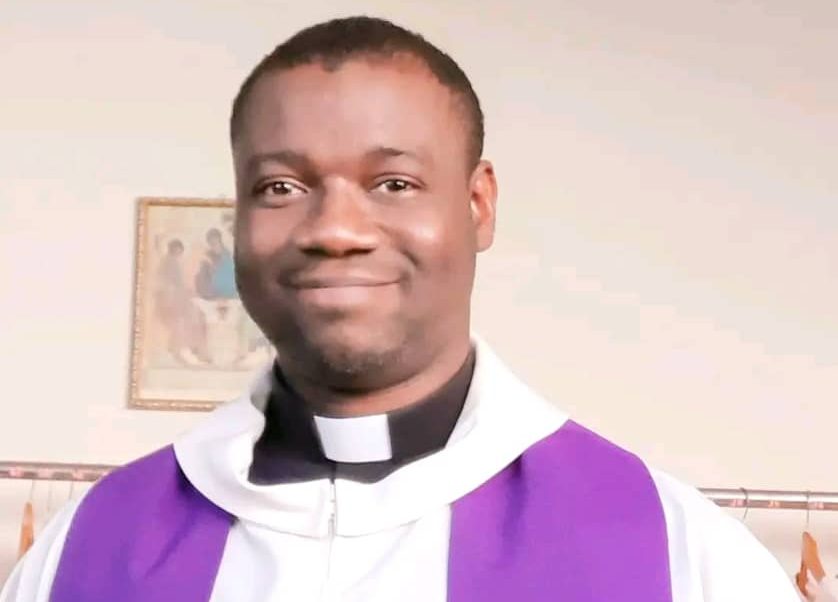
The Catholic Diocese of Auchi in Edo State yesterday, announced the release of Rev. Fr. Thomas Oyode from the hands of his abductors.
The Director of Communications of the Diocese, Rev. Fr. Peter Egielewa, in a statement, said Rev. Fr. Oyode was released at about 7.00p.m on Wednesday, 6th of November, 2024 at a village close to Ajaokuta, Kogi State.
Fr. Thomas Oyode was kidnapped on the 27th October 2024 when gunmen attacked the Immaculate Conception Minor Seminary, Ivhianokpodi-Agenebode, Etsako East Local Government Area of Edo State, while the Priests and Seminarians were observing their evening prayers and Benediction.
“The Bishop of the Catholic Diocese of Auchi, Most Rev. Dr. Gabriel Dunia, expresses gratitude to all for the prayers and moral support received for the 11 days Fr. Thomas Oyode was held captive, including Catholic Faithful within and outside the Diocese, well-meaning Nigerians within and outside the country, friends and well wishers around the world, as well as security agencies, various vigilance groups and hunters who laboured day and night in search of Fr. Thomas Oyode.
“The Bishop also uses this opportunity to call on government at all levels to work to arrest the deteriorating security situation around the Edo North Senatorial District and Edo State and take pro-active steps to put in place measures that will guarantee that people return to their normal peaceful lives in their homes, in their farms and while on transit,” the statement said.
News
Breaking: Panel exonerates Nigerian military, indicts MSF for illegal abortions in North East, says ICRC, Reuters refused to appear for questioning
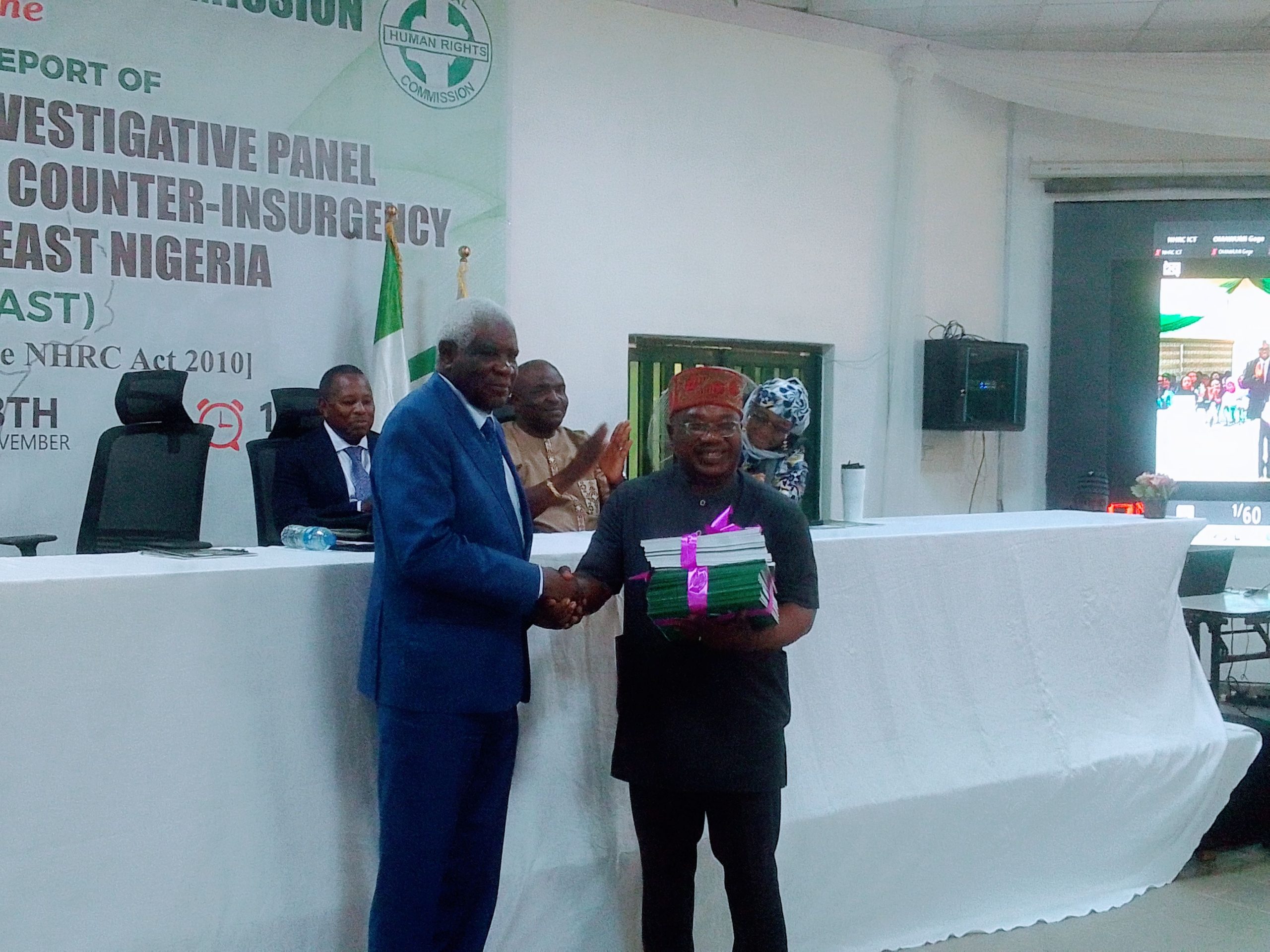
The the Special Independent Investigative Panel on Human Rights Violations in Counter-Insurgency in the North East, on Friday, submitted its final report to the National Human Rights Commission, NHRC.
The panel was inaugurated in February 2023 by the NHRC following report by Reuters reports which named several incidences of abuses on citizens allegedly committed by officers and men of the Nigerian military.
Reuters had alleged that the military committed abuses like forced abortions on women, saying victims were as many as 10,000. Other abuses include torture, rape, extra-judicial killings, abductions and illegal detention, among others.
In the report, the panel said most of the allegations allegations levelled against the military were false, including forced systemic abortions administered on women in the affected areas.
It indicted Medecins Sans Frontieres, MSF of conducting illegal abortions on women in the North East, adding that Reuters ignored such infractions by MSF and some other non-governmental organisations.
The panel said it was unbelievable that the International Committee of the Red Cross, an organisation that oversees issues of human rights could refuse to appear to testify and provide relevant information to unravel the truth on such grave allegations.
It however that the military committed infanticide, the killing of infants in Barte community of Borno State.
The panel said some non-governmental organisations committed a lot of infractions in the North East whole disguising as community based organisations and pointed directly Doctors Without Borders, also known as Medecins Sans Frontieres, MSF for operating clinics where illegal abortions were administered on women.
In his opening remark, the chairman of the 7-man panel, Justice Abdu Aboki (rtd) thanked the Commission for setting up the panel aimed at getting the truth or otherwise of the allegations contained in the Reuters report.
He noted that the panel worked without any form of interference from the NHRC or any other government agency in the country
Giving details, Hillary Ogbonna, Secretary of the panel, said the report is in three volumes made up of main reports, summary of report and graphics.
He said the panel sat for 12 weeks spread across 12 months, with 199 witnesses making appearance before the panel, made up of military generals, officers and men of the military, medical personnel, local government and state officials and members of the public.
According to him, the panel sat in four different locations which are Maiduguri in Borno State, Damaturu, Adamawa and Abuja.
Speaking after receiving the report, the Executive Secretary of the Nation’s Human Rights Commission, Dr. Tony Ojukwu, SAN, thanked the panel for the efforts put in the investigation which he said started in 2023.
He said the panel was set up in accordance with Sec. 5 and 6 of the NHRC Act 2010, as amended, as a response to the grave allegations contained in the Reuters report.
Ojukwu said the reports calls for clarity action as well as highlights the urgent need for transparency in security operations in the country as well as the need to protect citizens from impunity.
Ojukwu thanked partners and stakeholders including UNICEF and other UN bodies in Nigeria, the Attorney General of the Federation and Minister for Justice, the Attorney Generals of Borno and Yobe States, the UN High Commission on Refugees, Norwegian Embassy, Canadian Embassy, Nigerian Air Force, US Embassy, Nigerian Defence Headquarters, management and staff of NHRC and the media for their contributions and sacrifices during the period of the panel’s work.
Details later…..
-

 News1 year ago
News1 year agoBreaking: Tinubu’s authentic ministerial nominees
-
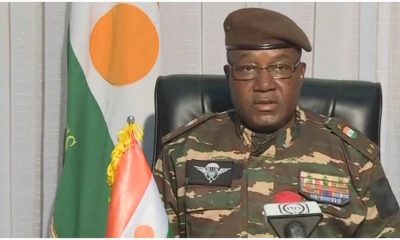
 News1 year ago
News1 year ago“Anytime we want to kill terrorists, President would ask us to take permission from France but they were killing our soldiers-” Niger Republic coup leader
-
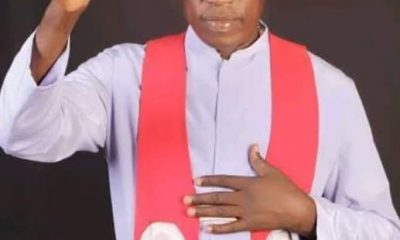
 News1 year ago
News1 year ago“I’m leaving the Catholic church because Bishop Onah is oppressing me,” says Okunerere
-
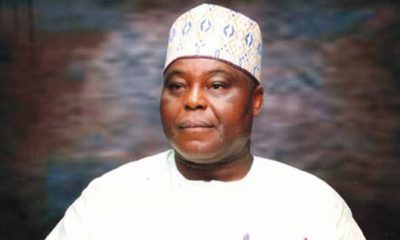
 News1 year ago
News1 year agoDokpesi and the Gazebo Mystique
-

 News1 year ago
News1 year agoRadio Nigeria’s veteran broadcaster Kelvin Ugwu dies three months after retirement from service
-

 News1 year ago
News1 year agoTsunami: Tinubu orders dissolution of managements, boards of MDAs, to sack all Buhari’s political appointees
-

 News7 months ago
News7 months agoPersons against Allagoa’s reforms behind protests at NSITF
-

 News1 year ago
News1 year agoLast minutes fever: Nigerian Hunters Service optimistic as Buhari signs five Bills into law

